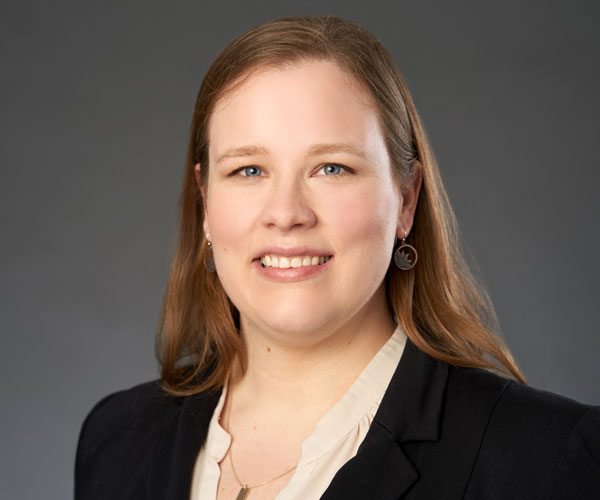Breaking Down the TRID Fix: It's the Same with Affiliates, Only Different
As we tackle the painful job of picking apart the CFPB's TRID "Fix" final rule, we are reminded again of the Bureau's deep appetite for technical minutiae. It's a regulation in the style of ancient filigree, complex to behold and not particularly easy to use. Identifying and absorbing these hyper-intricate changes is just step one in the mission to actually understand what will change for credit unions who have to use this rule.
So, today, we are going to look at one piece of the amendments: clarification regarding costs paid to affiliates for which there is no applicable tolerance.
Paragraph 19(e)(3)(iii) Amounts Paid To Affiliates
Paragraph 19(e)(3)(iii) is the paragraph that describes the five categories of charges for which there is no applicable tolerance or comparison to the Closing Disclosure to determine good faith. Currently, it reads like this:
"(iii) Variations permitted for certain charges. An estimate of the following charges is in good faith if it is consistent with the best information reasonably available to the creditor at the time it is disclosed, regardless of whether the amount paid by the consumer exceeds the amount disclosed under paragraph (e)(1)(i) of this section:
(A) Prepaid interest;
(B) Property insurance premiums;
(C) Amounts placed into an escrow, impound, reserve, or similar account;
(D) Charges paid to third-party service providers selected by the consumer consistent with paragraph (e)(1)(vi)(A) of this section that are not on the list provided pursuant to paragraph (e)(1)(vi)(C) of this section; and
(E) Charges paid for third-party services not required by the creditor. These charges may be paid to affiliates of the creditor." 12 C.F.R. § 1026.19(e)(3)(iii) (Emphasis added).
As you can see, the phrase "[t]hese charges may be paid to affiliates of the creditor" is attached only to subparagraph (E). In the proposal, the Bureau stated:
"The Bureau understands that there is uncertainty whether all five of the § 1026.19(e)(3)(iii) categories include charges paid to affiliates of the creditor or if only the § 1026.19(e)(3)(iii)(E) category (i.e.,charges paid for third-party services not required by the creditor) includes charges paid to affiliates of the creditor. The Bureau believes there are reasonable arguments to support either of those interpretations under the current rule but is proposing to change the rule prospectively so that all five categories expressly include charges paid to affiliates." 81 Fed. Reg. 54332.
In exchange for choosing the more expansive of these possible interpretations, the CFPB is adding a caveat: a charge paid to an affiliate must be "bona fide" in order for it to have no applicable tolerance rules. The Bureau stated that this addition was intended to limit any potential harm associated with allowing variations without regard to tolerances on charges paid to affiliates.
In the final rule, the Bureau moves the phrase addressing affiliates out of sub-paragraph (E) and into paragraph 19(e)(3)(iii) itself, and adds the language about the charges being bona fide:
"(iii) Variations permitted for certain charges. An estimate of any of the charges specified in this paragraph (e)(3)(iii) is in good faith if it is consistent with the best information reasonably available to the creditor at the time it is disclosed, regardless of whether the amount paid by the consumer exceeds the amount disclosed under paragraph (e)(1)(i) of this section. For purposes of paragraph (e)(1)(i) of this section, good faith is determined under this paragraph (e)(3)(iii) even if such charges are paid to affiliates of the creditor, so long as the charges are bona fide: […]" 81 Fed. Reg. 37768 (Emphasis added).
The final rule also adds new comment 4 to paragraph 19(e)(3)(iii), which describes that a charge is bona fide if it is "lawful and for services that are actually performed."
The comment also reinforces that just because a charge has no applicable tolerance does not mean it is automatically in good faith under section 1026.19(e)(3)(i). The charge must still be consistent with the best information reasonably available to the creditor at the time the disclosure is provided. The existing commentary to section 19(e)(1)(i) directs readers to the commentary to section 1026.17(c)(2)(i) for an explanation of that standard.
The good news is that more fees may not be subject to a tolerance requirement for good faith analysis. The bad news is that there is now yet another hoop in the TRID rules to push a fee through before it can be confidently charged to a borrower. But credit unions and their affiliates are not in the business of charging their members illegal or sham fees, so this one should be relatively painless.

 Elizabeth M. Young LaBerge,
Elizabeth M. Young LaBerge,